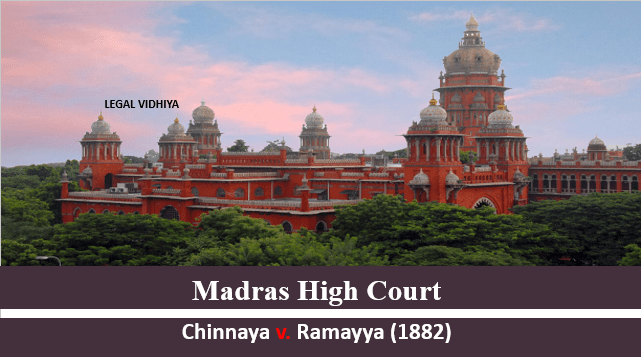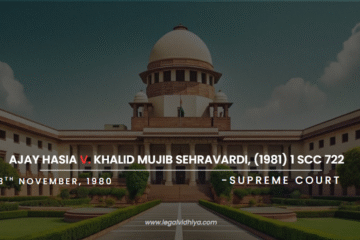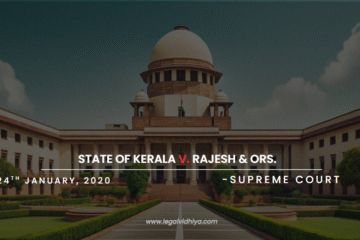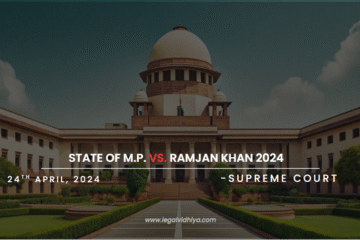
| CASE NAME | Chinnaya v. Ramayya |
| CITATION | ILR(1876-82)4 MAD 137 |
| BENCH | Innes J, Kindersley J |
| COURT | Madras High Court |
| PLAINTIFF | Chinnaya |
| RESPONDENT | Ramayya |
INTRODUCTION
This case deals with the essential of a valid contract which is mentioned in section 10 of the Indian Contract Act, 1872 which says All agreements are contracts if they are made by the free consent of parties competent to contract, for a lawful consideration and with a lawful object, and are not hereby expressly declared to be void. In legal terms, consideration is called QUID-PRO-QUO which means two parties exchange something with each other to form a valid contract. In this case the court mentioned that it is necessary to have the law’s full consideration and without it, the contract will be void. Thus when Ramayya refuses to pay Chinnaya the annuity amount the court held that the contract is valid and enforceable by the eye of the law This case also deals with privity of consideration.
FACTS
There was an old lady having property in her name. She wanted to transfer her property to her daughter Venkata Ramayya Guru (Respondent in the case) but she made one condition before transferring the property that is she would always pay an annuity amount of Rs 653 to her sister Venkata Chinnaya Rau (Appellant in the case). Her daughter agreed to her mother’s condition to transfer the annuity amount. The property has been transferred to Ramayya on a gift basis. After some time there was the death of her mother and Ramayya got possession of her mother’s property. After claiming the property under her and getting the right over it Ramayya stopped sending money to Chinnaya on an annuity basis which her mother told her to send as a condition of that agreement. Venkata Chinnaya Rau approaches court for justice as the condition has not been fulfilled by Ramayya which was mentioned in the agreement.
ISSUE
- Chinnaya is a stranger to the contract.
- Chinnaya is bound to receive the consideration.
PLAINTIFF ARGUMENTS
The plaintiff contended that Ramayya should pay an annuity amount to her as mentioned in the agreement and only on this condition the property has been transferred to her. Also, her sister gifted her whole property as a consideration of her behavior which does not make her a stranger to the contract.
DEFENDANT ARGUMENT
Ramayya contented that she is not liable to pay anything to her aunt as she didn’t receive anything called consideration from her and this is necessary to form a contract as described in section 2(d) of the Indian Contract Act, 1872 which means two parties exchange something with other to form a valid contract. Thus his contract is void as the property was received by her as a gift that was given by her mother to her. Gifted property can not be considered as a consideration because gifted property was not the plaintiff’s property and concerning that she cannot claim consideration for that property. The plaintiff is a total stranger to the contract and the contract between the plaintiff and respondent is not valid as it does not have valid consideration.
JUDGMENT
In this case court held that the contract is not void as it is a valid consideration and it’s mentioned in section (d) of the Indian Contract Act defines consideration as: ‘When, at the desire of the promisor, the promisee or any other person has done or abstained, from doing or does or abstains from doing, or promises to do or to abstain from doing something, such act or abstinence or promise is called a consideration. Consideration needs to be provided by promise or any other person and in this case, Chinnaya’s sister transferred her the property as consideration on behalf of her Innes J. held that a third party can move the consideration on behalf of a person who is strange to that consideration. Therefore, the appellant who is strange to that gifted property and the same was not gifted by her to the respondent, even then it would be considered as a valid consideration because that property was gifted as consideration by that old lady (third person) on behalf of her sister Chinnaya (appellant).
Another judge was also of the same opinion and held that the property was transferred to her by the old lady on condition that she would give Chinnaya Rs 650 on an annuity basis but after the death of the old lady she refused to send money will term a breach of contract and it will Venkata Chinnaya Rau a legal right to sue another party for not sending her money which was mention in the agreement. Therefore the contract between Chinnaya and Ramayya was held valid and the respondent was liable to transfer the annuity amount to the plaintiff as a stranger to consideration can file a suit if she/he is a beneficiary in a contract and can also recover the subsequent amount.
CONCLUSION
Chinnaya v. Ramayya is a landmark judgment that deals with section 2(d) and section 10 of the Indian Contract Act as it tells us about the essentials of making a contract such as free consent, valid consideration, lawful object, etc. This case deals with valid consideration and how a stranger to consideration can file suit. Valid consideration is also known as QUID-PRO-QUO in legal terms. This means two parties exchange something with each other to form a valid contract. According to this, a consideration will always be valid even if it is furnished by a third party/stranger to the contract on behalf of a person who is a party to that contract. So, as per the Indian Contract Act, of 1872, a stranger to consideration can sue and recover a subsequent amount. This case also shows the progressiveness & non-conventional approach of Indian law to dealing with matters involving strangers to consideration
REFRENCE
https://blog.ipleaders.in/chinnaya-vs-ramayya-an-analysis/
This Article is written by Priyanshi Bharti student of Vivekananda Institute of Professional Studies, GGSIPU; Intern at Legal Vidhiya.




0 Comments